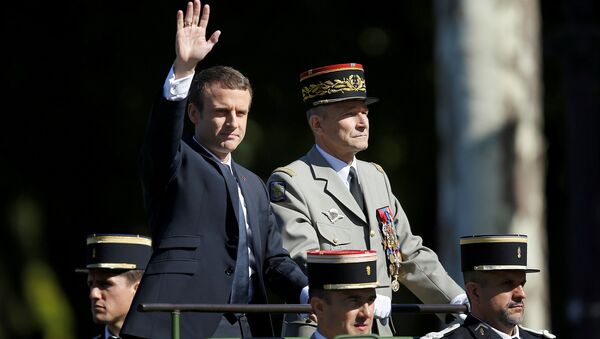French president Emmanuel Macron has thrown his weight behind the reintroduction of compulsory national service in the armed forces in a move that may prove highly controversial. The declared objective of the policy, which was a feature of Mr. Macron's presidential bid, is designed to promote "social cohesion" and patriotism.
The policy has elicited generally negative reactions on social media, with many users pointing out that France abolished compulsory military service in order to improve the social climate in the country which had become increasingly polarized. Conscription was abolished in France in 2001. President Macron himself has not undergone military service as the practice ended just he reached adulthood.
JUST WHAT WE NEED
— john hardman (@johnhardman3) February 13, 2018
Macron brings back national service two decades after it was scrapped in bid to heal deep divisions in the country
Freedom hater Emmanuel Macron brings back compulsory national military service for young people in France https://t.co/NZFM3yHi25
— Richard Wellings (@RichardWellings) February 13, 2018
Seems like a lot of effort and expense for a one month commitment. https://t.co/oWsWQXElmd
— james*mcdonald (@Scotia_Nostra) February 13, 2018
The exact position of the government itself has been unclear, as a presidential spokesman suggested that national service would not necessarily be compulsory or could be civil rather than military in nature.
Militarization and Polarization
French society has become increasingly militarized since the Paris terrorist attacks of November 2015 which saw the institution of a state of emergency legalizing invasive surveillance as well as the routine presence of thousands of soldiers on the streets of French cities. The state of emergency ended in October 2017 but many of the powers it authorized were signed permanently into law by President Macron.
Throughout much of his first year in office, French politics have been dominated by Mr. Macron's attempts to force through wide-ranging labor laws making it significantly easier for employers to sack workers. The reforms, which ultimately passed successfully, generated extremely large protest movements around the country, which has been saddled with increasingly high youth unemployment since the 2008 Global Financial and Eurozone crises.


